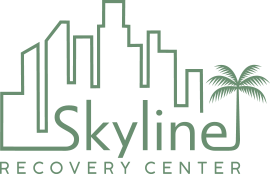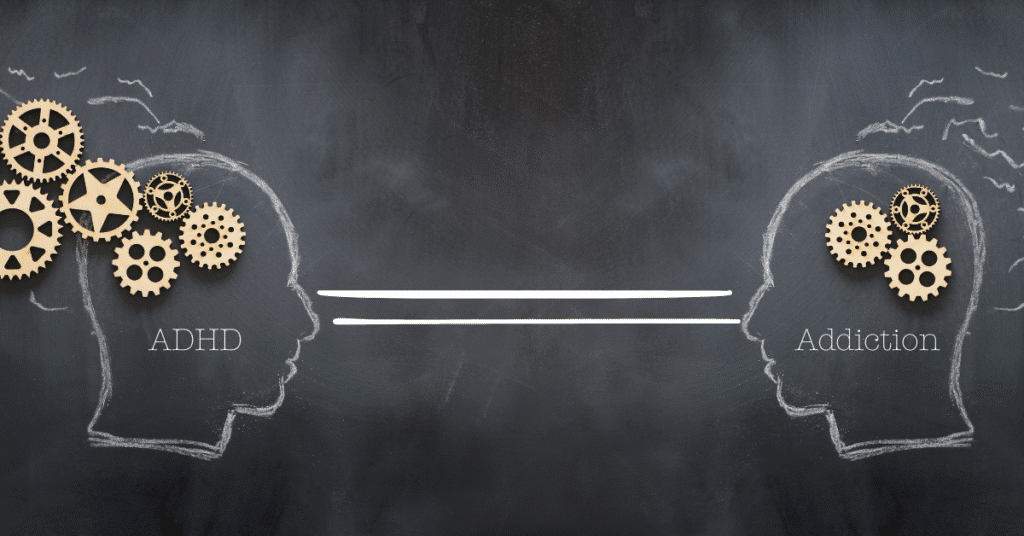Attention-deficit/hyperactivity disorder (ADHD) is a developmental condition characterized by attention-related difficulties, hyperactivity, and impulsivity. It is a challenging condition in itself; this only gets compounded when substance use comes into the picture as well. What often goes unrecognized is that ADHD and substance use often share a common thread: the pursuit of instant gratification, novelty, and thrill.
In this article, we will explore this link in detail in an effort to shed light on how closely tied ADHD and drug abuse are, and what the path ahead is for those struggling with these conditions.
Why ADHD Increases the Risk of Addiction?
Did you know that ADHD triples the risk of substance use? Studies have shown that those with ADHD have a 15.2% risk of substance use disorder compared to the 5.6% of those without ADHD.
There are some reasons for this. Drug addiction and ADHD have some overlapping emotional and behavioral factors – such as impulsivity, novelty and thrill-seeking behaviors, immediate gratification tendencies, and certain life stressors like financial difficulties and lack of stable employment.
On the other hand, it is also the brain chemistry and functioning that need to be looked into as well. When a person struggles with ADHD, it feels like the brain is always in an overactive mode; therefore, using substances either activates the reward centers of the brain, increasing the levels of dopamine, or it can even lead to a relaxing effect. For instance, those with ADHD are 5 to 10 times more likely to struggle with an alcohol use disorder for this reason. Even more so, 70% of the youth struggling with ADHD tend to use substance use as a way to self-medicate rather than to get high or for other recreational purposes.
Common Addictions in People with ADHD
Stimulants
Stimulants like caffeine and nicotine are commonly used by adults with ADHD in order to self-medicate. Other dangerous stimulants also include cocaine, crystal meth, ephedrine, and MDMA (Ecstasy).
Alcohol
Alcohol is not exactly dangerous when used in moderation. But social drinking can quickly spiral into an alcohol use disorder that can be a deadly condition in itself. Alcohol, like stimulants, is also used to self-medicate, as it has a relaxing effect on the brain.
Marijuana
There has been an extensive debate regarding the medical uses of marijuana. Marijuana can tone down the hyperactivity commonly linked with ADHD, but regular marijuana use can also negatively impact cognitive functions like attention and memory.
Opiates
Opiates are among the most dangerous drugs available. These drugs include codeine, heroin, and morphine. While certain opiates are prescribed as pain relievers, when abused, they can lead to life-threatening circumstances and even fatalities.
Sedatives
Sedatives act as central nervous system depressants, relaxing the brain. Typically, they are prescribed to ease stress, anxiety, and sleep troubles. In fact, sedatives can also be prescribed as sleep aids for those with ADHD, but they can be misused as well, leading to substance use disorders.
Hallucinogens
Hallucinogens like magic mushrooms, LSD, mescaline, psilocybin, and PCP are powerful drugs that can change the perception of time and reality. Hallucinogen use is also found among those with ADHD.
Behavioral Addictions
While we have spoken at length about ADHD and drug abuse, addiction is not limited to substance use. There are some behavioral addictions that are commonly linked with ADHD as well. For instance, food, shopping, gambling, and sexual addictions are characterized by distractiveness and a loss of control common with ADHD. These behavioral addictions can also turn dangerous if not paid attention to or treated early.
Diagnosing Both ADHD and Addiction
The diagnosis of both ADHD and substance abuse is known as a dual diagnosis. Diagnosing alcohol/drug addiction and ADHD can be complex, as some traits like impulsivity and difficulty focusing can overlap and complicate the diagnosis.
Therefore, mental health practitioners often wait for a person to be substance-free for some time before they can diagnose them with ADHD. Tools like the Adult ADHD Self-Report Scale (ASRS) and the Drug Abuse Screening Test (DAST) are commonly used to confirm the diagnosis of these co-occurring disorders. Apart from diagnosis, a comprehensive psychiatric evaluation (psych eval) is crucial and the first step to crafting personalized care plans.
How to Treat ADHD and Substance Abuse Together?
Treating ADHD and substance abuse can be challenging, and it involves psychotherapy, medication, and social support. ADHD and drug abuse can be treated simultaneously with a dual diagnosis treatment program. Psychotherapy involving supportive counseling, family therapy, group therapy, social support, and holistic healing methods like meditation, mindfulness, and yoga is integral to a dual diagnosis care program. The focus is on:
- Building intrinsic motivation toward modifying destructive behaviors and lifestyle factors.
- Getting to the bottom of underlying thinking patterns leading to substance use
- Controlling ADHD-related symptoms with behavioral modification.
- Identifying and managing triggers and other impulsive behaviors that define both ADHD and substance abuse.
- Educating family members and supporting them in this journey so that they can better support the person.
- Preventing relapse with ongoing care and social support in the form of peer support groups like Alcoholics Anonymous and Narcotics Anonymous.
Meanwhile, medication management is also extremely important in treating ADHD and certain substance use disorders like alcohol use and opioid use disorders. However, stimulants like Adderall and Ritalin used in the treatment of ADHD can become habit-forming in themselves when they are misused. So, regular follow-ups with the doctor and medical monitoring are vital.
Dual diagnosis care programs are comprehensive and personalized to a person’s unique needs and goals so that they can help in the management of ADHD symptoms and modify a person’s triggers and responses during recovery as well. This will allow people to lead a healthy and fulfilling life, free from the grip of all substances.
A Word From Skyline Recovery
Skyline Recovery Center is an outpatient rehabilitation center in Los Angeles that offers comprehensive dual diagnosis programs for ADHD and drug abuse or alcohol abuse. We offer partial hospitalization programs and intensive outpatient programs that are intensive in care and structure, and we offer standard outpatient treatment options as well.
At Skyline, we believe in providing personalized options so that your care is relevant to your needs and goals. Every person is unique, and so is their recovery. We celebrate your uniqueness by creating condition-specific and personalized recovery paths for lasting recovery and a fulfilling life ahead. A brighter tomorrow is just on the horizon; you only have to take the first step and reach out to us.
If you or your loved one is struggling with ADHD and substance use, it is never too early or too late to seek care. Contact us at (310) 269-0038 to begin your healing journey today!
References –
https://pmc.ncbi.nlm.nih.gov/articles/PMC4403287/
https://chadd.org/about-adhd/co-occuring-conditions/
https://www.webmd.com/add-adhd/adhd-and-substance-abuse-is-there-a-link
https://add.org/wp-content/uploads/2015/03/adhd-questionnaire-ASRS111.pdf


